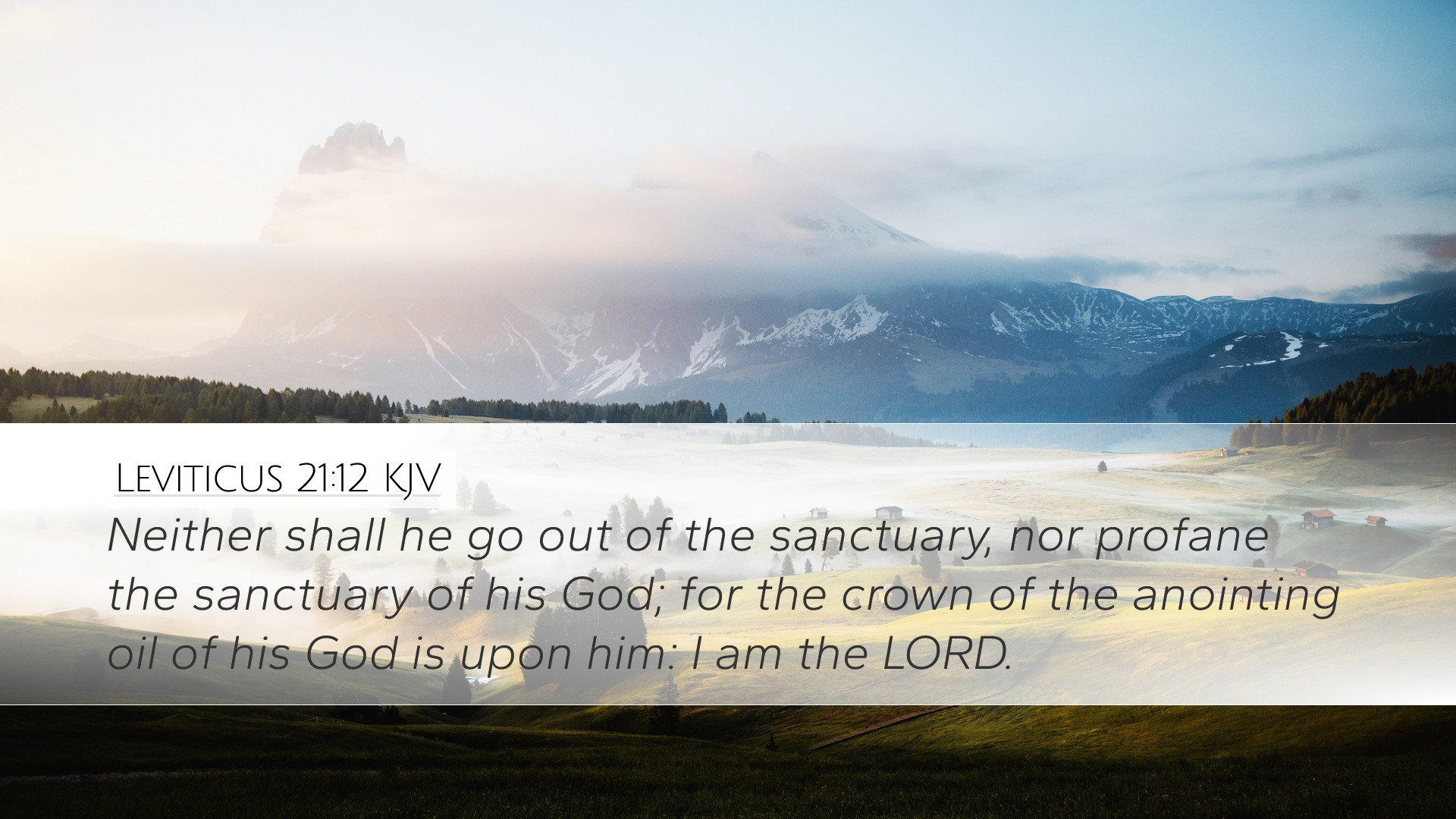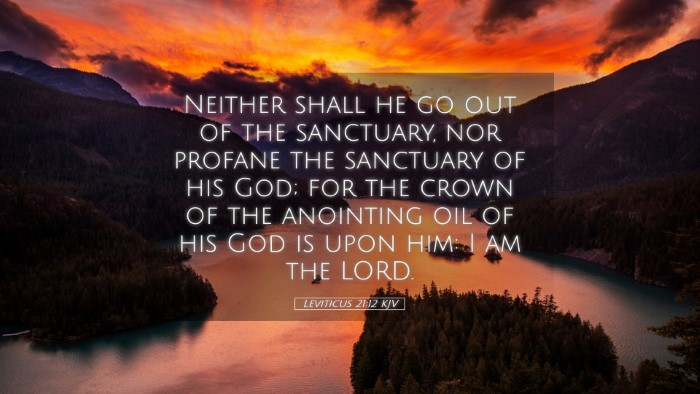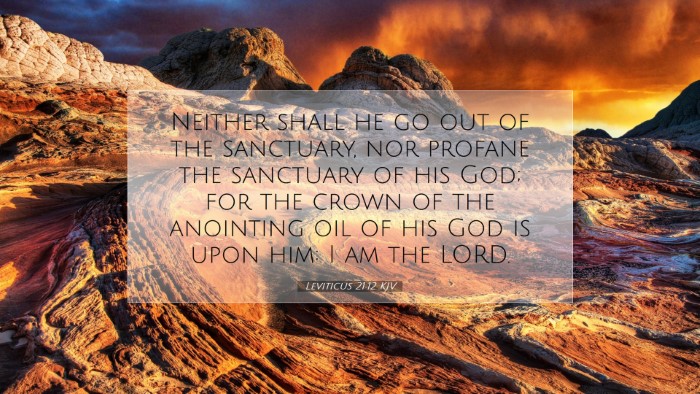Commentary on Leviticus 21:12
Verse: "Neither shall he go out of the sanctuary, nor profane the sanctuary of his God; for the crown of the anointing oil of his God is upon him: I am the LORD."
Introduction
This verse addresses the responsibilities and limitations of the priest, particularly the high priest, in maintaining the sanctity of the sanctuary. It emphasizes the importance of the calling of God and the responsibilities that accompany it.
Insights from Commentators
Matthew Henry's Commentary
Matthew Henry focuses on the sanctity of the priestly office and the holiness that is required of those who serve in it. He emphasizes the following points:
- Separation from Common Life: The priest is to avoid contact with the ceremonial dead, symbolizing a separation from ordinary life. This separation signifies the seriousness of his role, set apart for God's service.
- Responsibility of Holiness: The high priest bears the "crown of the anointing oil," a symbol of divine appointment and empowerment. This anointing signifies that he is both chosen and equipped for his sacred duties.
- Preservation of Sanctity: By stating that he shall not "profane the sanctuary," Henry implies that the high priest must guard the holiness of the temple—an essential role in maintaining Israel’s relationship with God.
Albert Barnes' Notes on the Bible
Albert Barnes delves into the restrictions placed upon the priest, exploring the practical implications of this verse:
- Physical Proximity to Death: Barnes notes that the priest is prohibited from leaving the sanctuary during significant days, highlighting the heavy toll that funerary activities can have on the spiritual responsibilities of a priest. This rule ensures that the priest remains focused on his sacred duties.
- Symbol of Authority: The "crown of the anointing oil" signifies not just privilege but immense responsibility. The priest must embody the holiness required, ensuring that his actions reflect upon the people he serves.
- Enduring Spiritual Vigilance: Barnes emphasizes that the sanctuary represents God's presence; thus, the priest’s commitment to it should be unwavering. This perpetual vigilance signifies an ongoing relationship between God, the priest, and the community.
Adam Clarke's Commentary
Adam Clarke provides a detailed analysis of the implications surrounding the instructions given to the priest:
- Spiritual Leadership: Clarke underscores that the priest's ability to conduct rituals and offer sacrifices is compromised if he fails to uphold the sanctity of his office. His separation from ordinary life allows him to focus solely on spiritual leadership.
- Delegated Authority: The high priest's authority is derived from God, and as such, he must act consistently with divine standards. Clarke points out that this verse affirms the importance of maintaining purity in service to God.
- Consequences of Profanation: Clarke warns that failure to respect these boundaries could lead to dire consequences, not only for the individual priest but also for the entire community, as it risks inciting God’s anger.
Theological Themes
From the insights provided by these commentators, several theological themes arise that are important for pastors, students, theologians, and Bible scholars:
- The Nature of Holiness: Holiness is a central theme, as this verse emphasizes the need for those serving God to embody purity and separation from the common or profane.
- The Role of Leadership: The responsibilities of spiritual leaders are highlighted, with an understanding that they must be models of holiness and commitment for others.
- God’s Presence in Worship: The sanctuary is depicted as a critical space where God's presence dwells, underlining the seriousness of worship and the reverence required in its practice.
- Accountability in Service: There is an inherent accountability in the priesthood, stressing that spiritual leaders must uphold their role with integrity and dedication.
Conclusion
Leviticus 21:12 offers profound insights into the nature of the priesthood and the importance of maintaining holiness in worship. By reflecting on the teachings of scholars such as Matthew Henry, Albert Barnes, and Adam Clarke, it becomes evident that the directive extends beyond ancient Israel’s priests to inform modern understandings of pastoral responsibilities. The verse serves as a reminder that all who serve in sacred capacities must prioritize the sanctity of their calling, embodying the holiness that God desires for His people.


